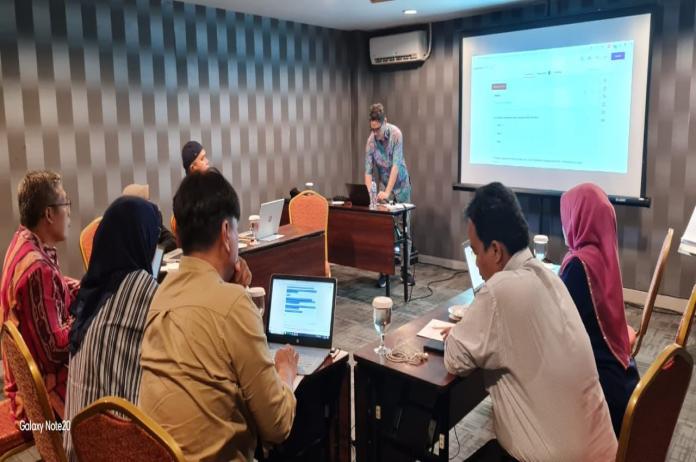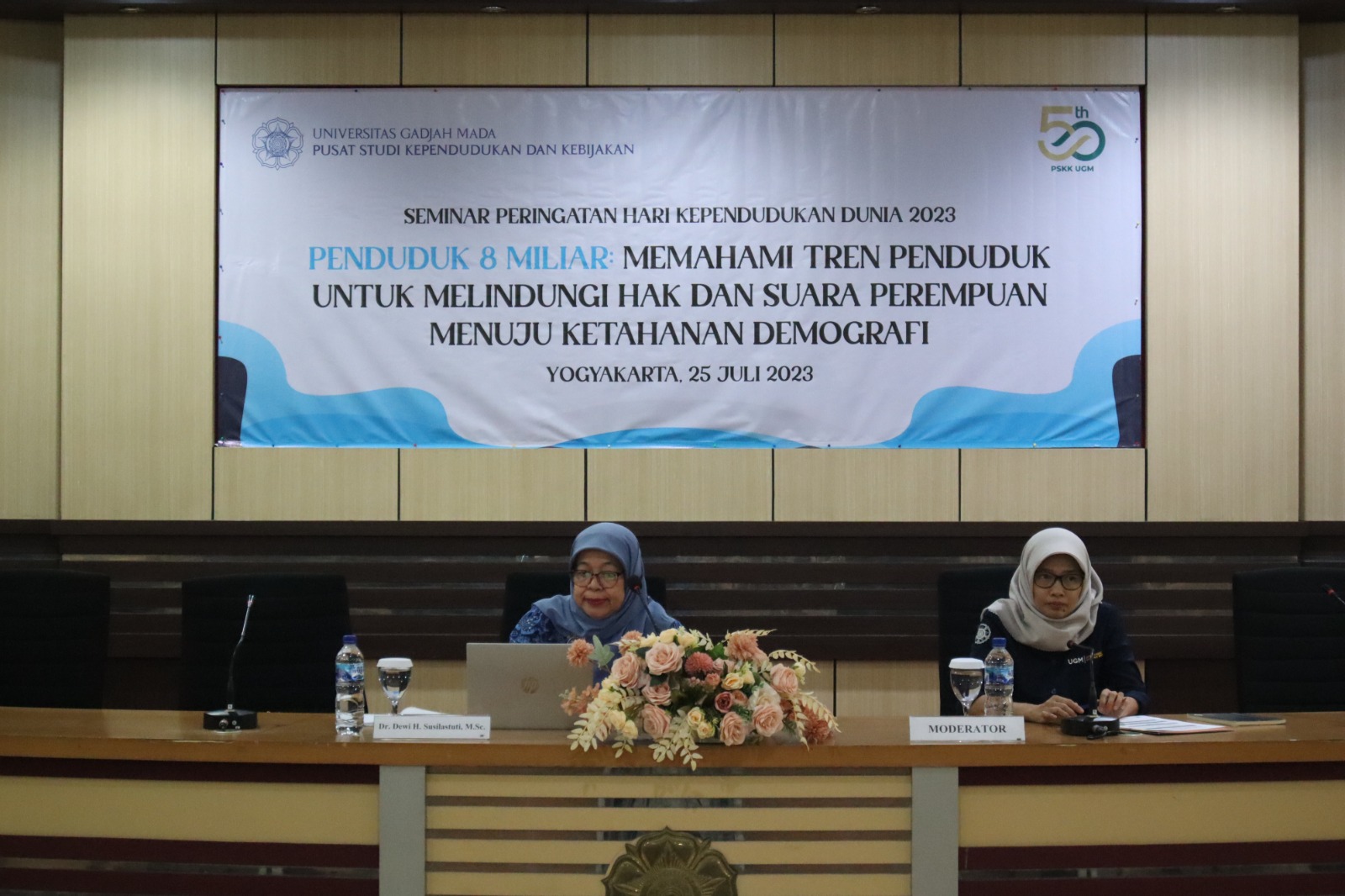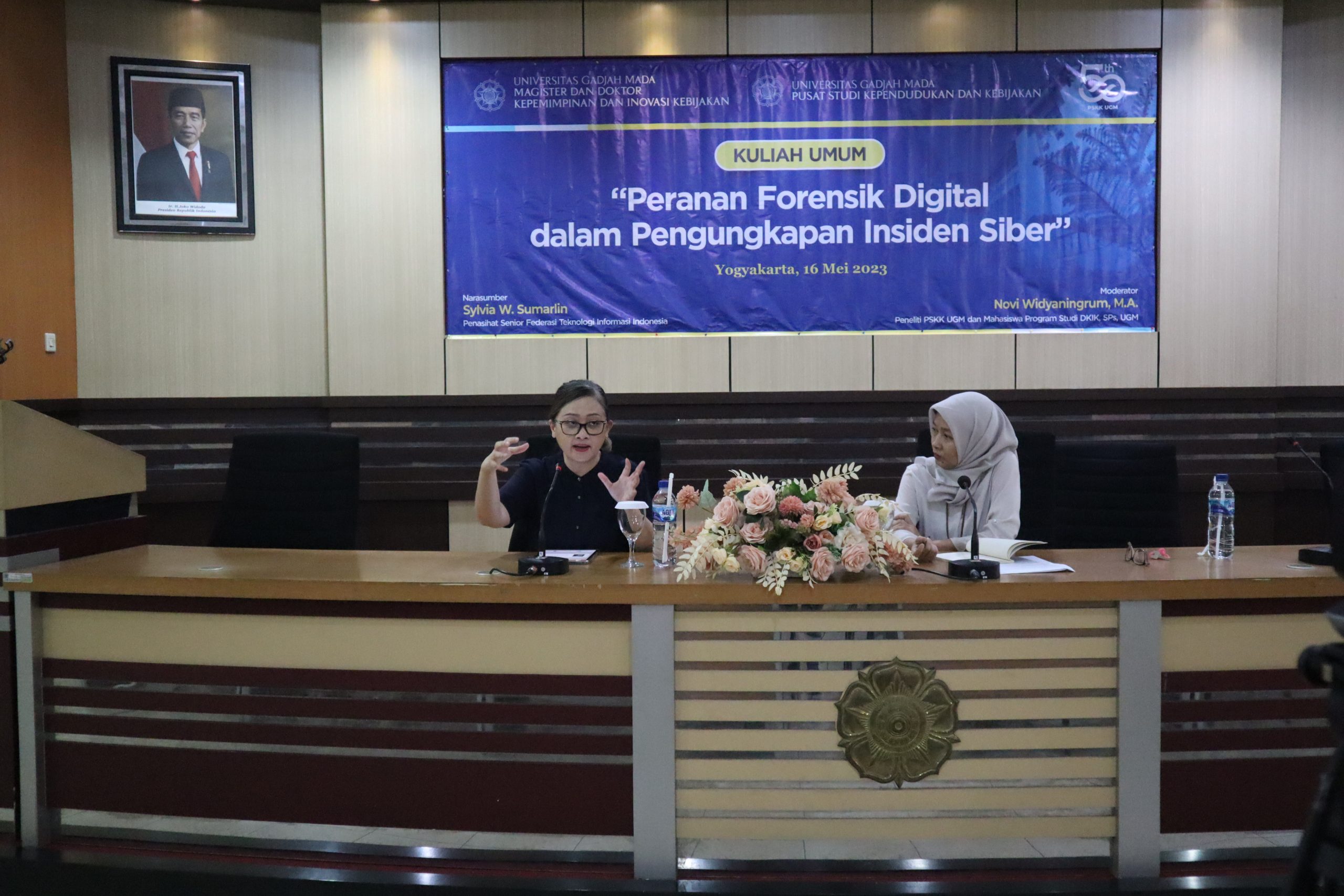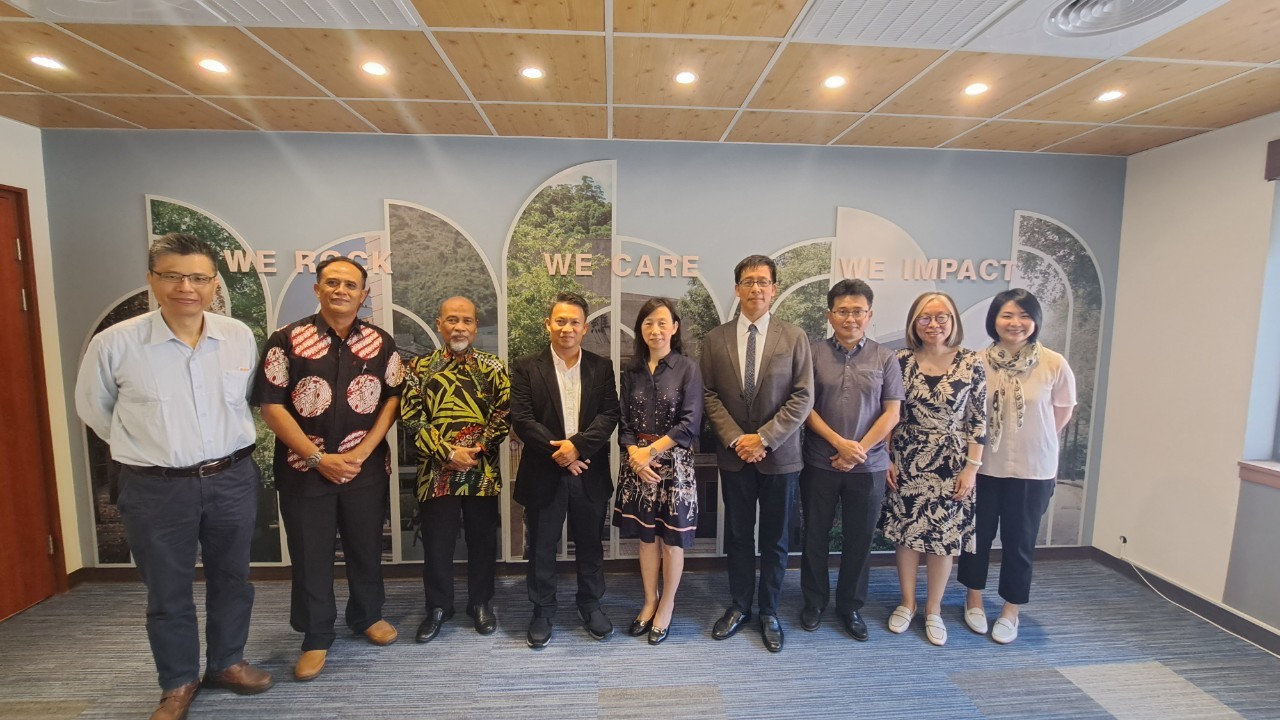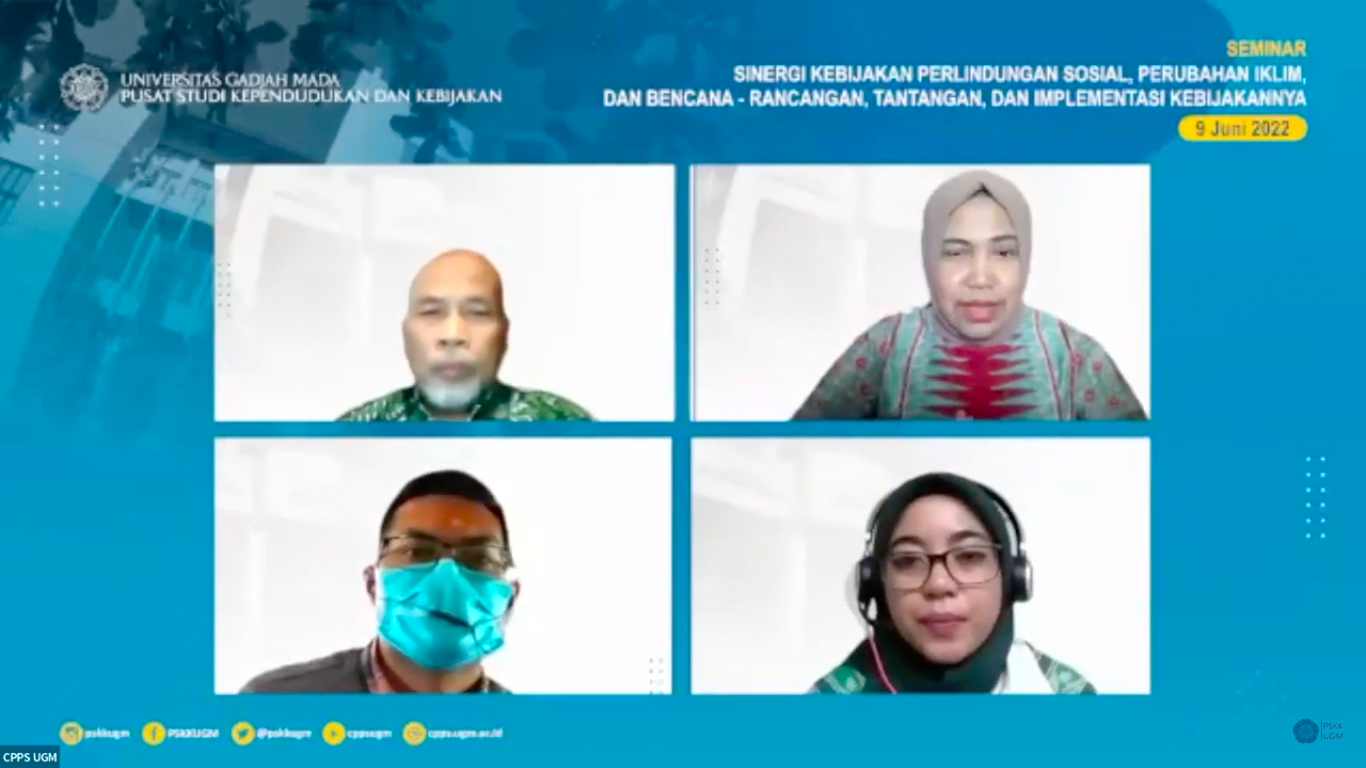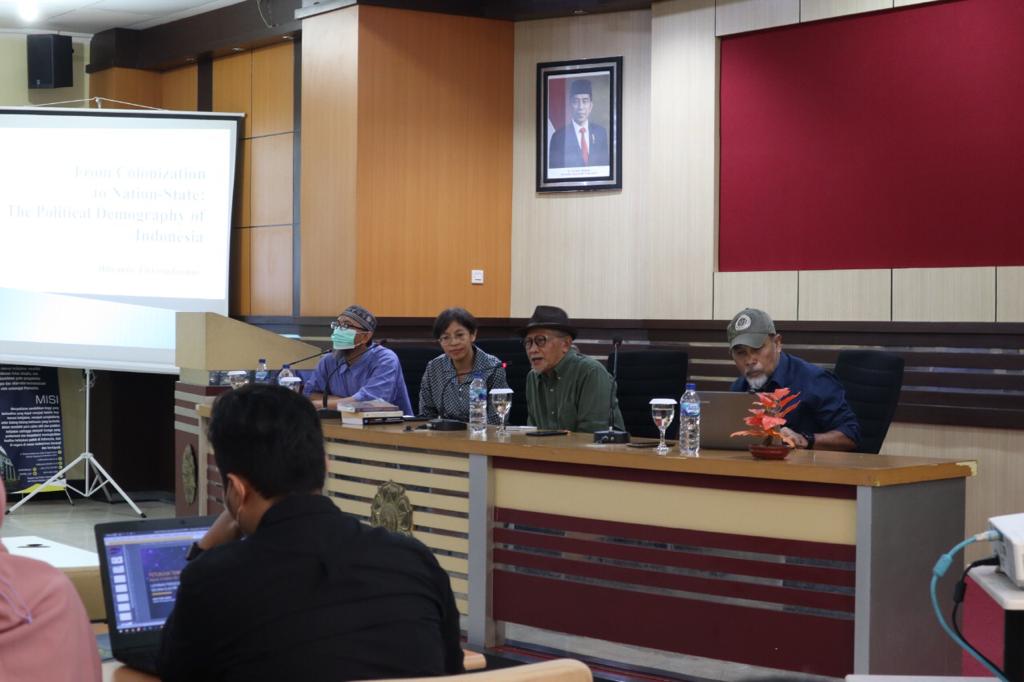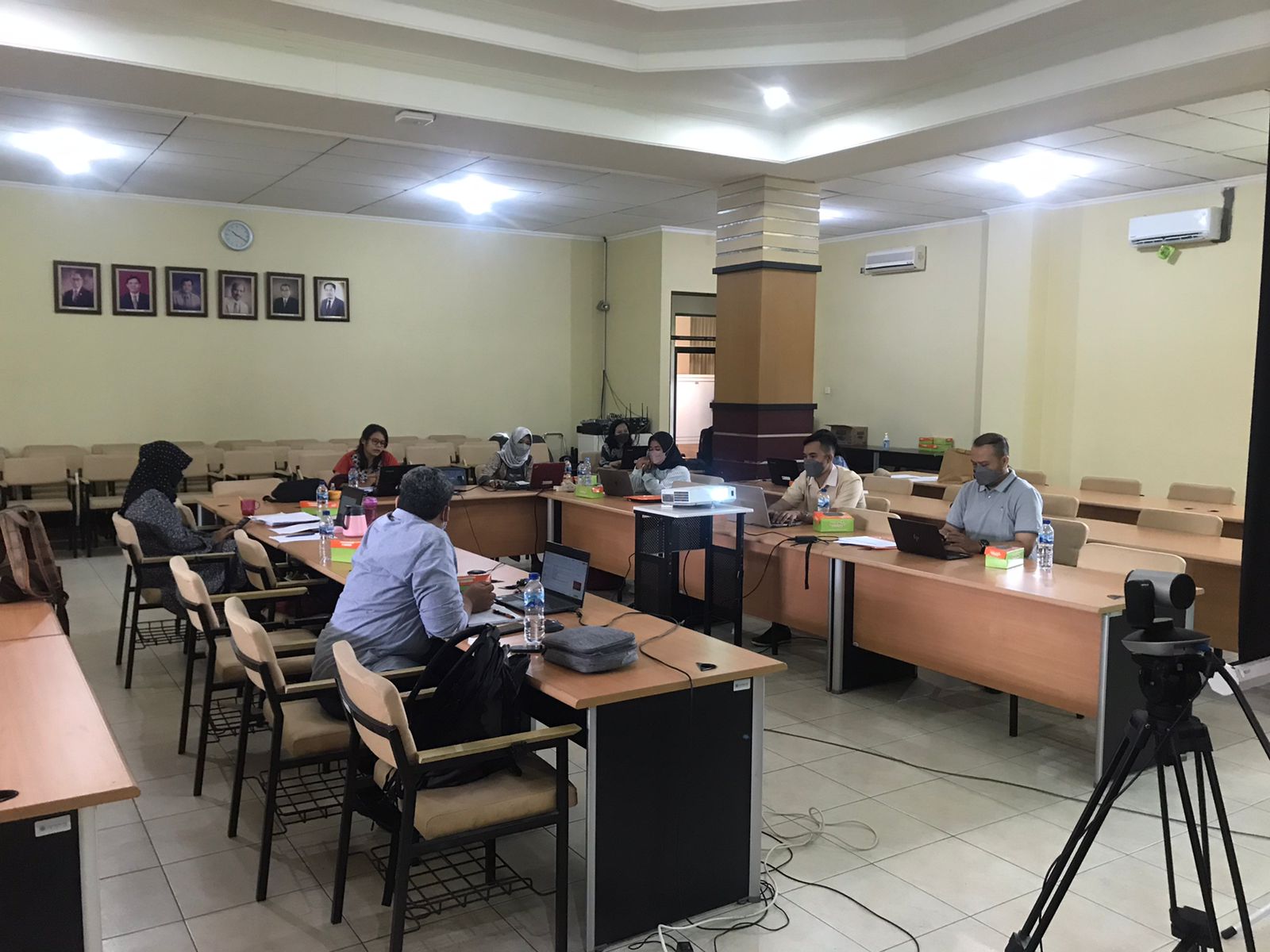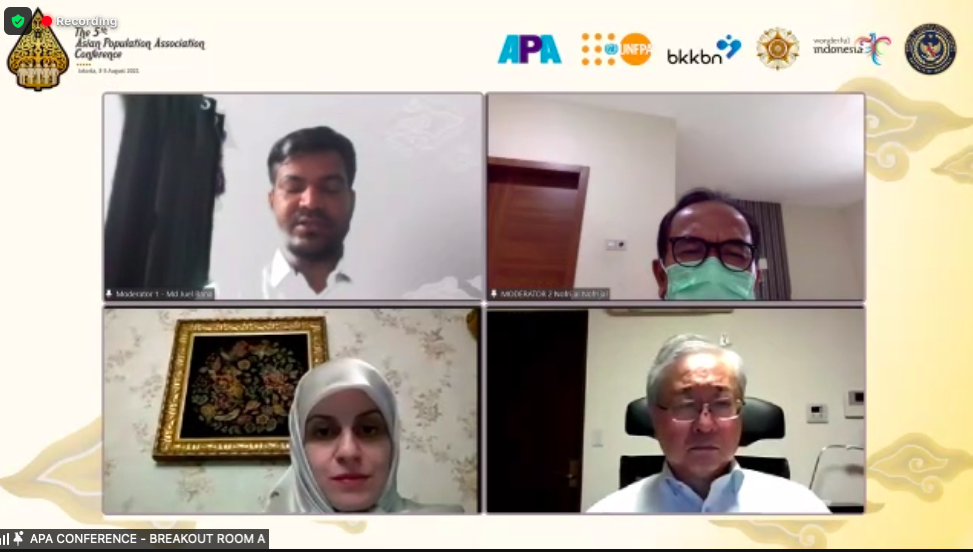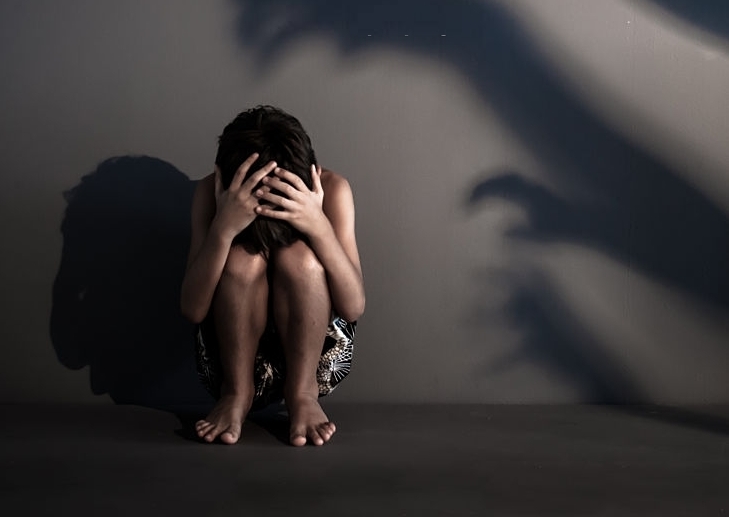PSKK UGM – Education and Training Center for Educational and Religious Technical Personnel sent a team to study Monitoring, Evaluation and Learning techniques at the Center for Population and Policy Studies Gadjah Mada University (CPPS UGM) Yogyakarta.
CPPS’ News
Yogyakarta – In commemoration of World Population Day 2023, the UGM Center for Population and Policy Studies (CPPS) held a seminar with the theme “A Population of 8 Billion: Understanding Population Trends to Understand Women’s Rights and Voices Towards Demographic Resilience”.
The seminar took place in the Prof. Auditorium Building.
CPPS UGM – MDKIK SPs UGM in collaboration with CPPS UGM successfully held a public lecture entitled “The Role of Digital Forensics in Disclosure of Cyber Incidents” on Tuesday, 16 May 2023.
Sylvia W.
CPPS UGM – CPPS UGM senior researcher, Dr. Sukamdi, Dr. Pande Made Kutanegara, and Dr. Hakimul Ikhwan held audiences in Hong Kong and Taiwan (HKUST Business School Central, Hong Kong; Tamkang University, Taiwan; National Cengchi University, Taiwan) to establish international collaboration.
CPPS UGM – Over the last five years, Indonesia has been entering an important policy momentum related to climate change, disaster management, and social protection.
The government has developed a new approach for solving the socio-economic problems caused by climate change and disasters by using a social protection scheme called the Adaptive Social Protection (PSA) policy.
To support the government in developing the PSA policy in Indonesia, the Center for Population and Policy Studies (CPPS) Universitas Gadjah Mada (UGM) held a workshop on Thursday, 9 June 2022.
The workshop was run under the theme, “The Synergy among Social Protection, Climate Change, and Disaster Policies – Policy Design, Challenges, and Its Implementation” by inviting some experts in PSA policy.
The CPPS UGM held the workshop to facilitate a meeting among academics, policymakers, and international institutions to formulate accurate strategies to realize the PSA policy in Indonesia.
On this special occasion, the CPPS UGM also brought together some experts, such as Dinar D. Kharisma, Ph.D. (Directorate of Poverty Reduction and Community Empowerment, Bappenas), and Dr. Annisa G. Srikandini (Social Policy, Specialist, UNICEF), and Ir. Cut Sri Rozanna, MA (Program Director, Social Protection Program, GIZ).
Other experts, such as Prof. Dr. Ahmad Maryudi (UGM Climate Change Expert), Dr. Dyah R. Hizbaron (UGM Disaster Studies Expert), and Dr. Mulyadi Sumarto (UGM Social Protection Expert), were also present to make the workshop a success.
Climate Change and the Importance of Strengthening PSA Policy in Indonesia
In 2018 and 2019, the government initiated the distribution of PSA by providing social assistance for the Family Hope Program (PKH) to poor households affected by the eruption of Mount Sinabung, North Sumatra, and the earthquake in South Halmahera, North Maluku.
The idea of developing the PSA policy is considered relevant for the Indonesians since some regions are highly vulnerable to climate change and natural disasters.
Climate change and natural disasters have resulted in death and complex socio-economic difficulties. Thus, the PSA policy is capable of being a medium to reduce the impact of climate change and disasters.
The PSA policy in Indonesia is currently focused more on solving the socio-economic problems caused by disasters and has not responded to climate change issues, such as responses to environmental conservation.
The policy is different from that of some countries, such as Africa, South Asia, and Latin America, some of which have been implemented since the early 2000s.
Governments in those countries have used the PSA policy not only to respond to socio-economic problems caused by natural disasters but also to address climate change issues, including forest conservation.
The PSA policy implemented in Brazil, for instance, is one of the most comprehensive PSA policies. They have implemented it to reduce the socio-economic risk for the victims of natural disasters. At the same time, Brazil has also developed a type of PSA policy that specifically minimizes deforestation and supports nature conservation.
The Indonesian government has officially declared the implementation of the PSA policy in the 2020-2024 National Medium-Term Development Plan (RPJMN) document.
The government stated their plan to develop the PSA system through the development of an institutional system and a PSA policy financing system.
Also, the government has made several targets, and thus, the government has allocated a quite large budget.
One of the important targets to be achieved by 2024 is that 30 percent of the central government agencies and local governments have adopted the PSA policy system.
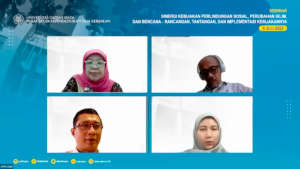
Unifying Mission to Form the Ideal PSA Policy in Indonesia
One of the speakers, Dinar D. Kharisma, Ph.D., from the Directorate of Poverty Reduction and Community Empowerment, Bappenas, said that there are at least five steps needed to strengthen PSA in Indonesia, namely the preparation of regulations and ASP development agendas, ownership development coordination among stakeholders, risk and vulnerability analysis based on valid data and risk mapping, the adaptation of social protection programs according to risk and vulnerability and the development of sustainable financing for program implementation.
Mulyadi Sumarto, PhD., the CPPS UGM researcher, also conveyed the concept of PSA and how the PSA program has been implemented in several countries, such as Africa, Brazil, and the Philippines.
He also explained the concept of PSA and the development of PSA policies in Indonesia. He added that once we study in the Philippines, for instance, the PSA policy has been implemented since the mid-1990s.
“If we (the Indonesians) are just starting this policy by this year, you can estimate this. If this is compared to that of the Philippines, we are not what so-called “left behind”, yeah you know it right? The appropriate term is that there is a gap of more than 25 years,” he added.
Moreover, there is no legal regulation currently in Indonesia regarding PSA, but its implementation refers to the RPJMN, and several PSA practices have also been implemented. “This is unique,” he continued.
You can get to know more about this workshop on the YouTube channel “CPPS UGM” or hit the link below:
Session 1: YouTube CPPS UGM
Session 2: YouTube CPPS UGM
————————————————————–
Writer: Nuraini Ika
Language Editor and Translator: Rinta Alvionita
CPPS UGM – Center for Population and Policy Studies (CPPS) UGM held a book review and discussion titled “From Colonization to Nation State – The Political Demography of Indonesia” written by Dr. Riwanto Tirtosudarmo, M.A.
Taking place online by obeying the health protocols at the Auditorium of CPPS UGM and offline via live streaming on the YouTube channel “CPPS UGM”, the event was attended and viewed by more than 70 participants.
As the reviewer, Sukamdi (senior researcher at CPPS UGM) said that the author has emphasized from the beginning that the book focuses on one of the demographic issues only, namely migration.
“For you who are interested in reading this book, don’t think about finding a detailed discussion outside of migration issues,” Sukamdi said and smiled at the audience.
At the end of the event, Basilica Dyah Putranti (researcher at CPPS UGM) as the moderator of the event presented several notes she concluded from the discussion.
She read some of the notes aloud, such as the next political demography author might be able to look further into the relationship between political demography and the structure of population composition.
“Fertility and motility have not been discussed much yet, have they?” She asked the author to whom he then nodded his head.
She asserted that global-local dynamics have been mentioned a lot in the book “Since this is not finished yet, it might be a good further concern for all of us,” she added.
See full discussion of the book review on the YouTube channel “CPPS UGM”.
CPPS UGM – Center for Population and Policy Studies (CPPS) UGM held a Training on Acceleration Studies in Underdeveloped Regions on 3-5 March 2022 at Auditorium Dr. Agus Dwiyanto, M.P.A., Masri Singarimbun Building, CPPS UGM.
CPPS UGM – The 5th Asian Population Association (APA) Conference of the year has been held virtually on 3-5 August 2021 in Indonesia by collaborating with BKKBN, UNFPA, and CPPS UGM. Union Formation is one of the interesting topics discussed in the parallel class on the second day, August 4, 2021. More than 80 participants joint this session with three speakers, i.e., Yothin Sawangde, Ph.D (an Associate Professor at the Institute for Population and Social Research, Mahidol University, Thailand), Fatemeh Torabi Ph.D (Research Officer and Data Analyst at Swansea University, Iran), and Prof. Hiroshi Kojima (Professor of Social Sciences at Waseda University, Japan).
The Role of Family in Children’s IQ Development
“The joy felt by children can affect the development of their IQ” is the highlight of a study entitled “Family Context, Sufficient Physical Activity, and Game Consequences on Primary School Age Children’s Jovial Habit and IQ in Thailand” conducted by Yothun Sawagde. This study targets 2,306 respondents who are the youngest children in the family, usually the second or third child. Using the Path Analysis method, the results of this study indicate that parental support, both in the nuclear family and extended family, has an influence on children’s jovial behavior and has an impact on children’s IQ scores.
“Besides father and mother in a nuclear family, the extended family such as grandparents, apparently also plays an important role in increasing or decreasing children’s jovial behavior which then has a great impact on their IQ scores,” Sawangde said.
Therefore, according to him, environment and circumstances are the most important things in shaping children’s psychological condition and intelligence.
Marital Preference in Iran and Japan
Another speaker, Prof. Hiroshi Kojima, delivered his finding on the premarital cohabitation experience of married couples in Japan. He explained that the results of his study entitled “Correlation of Premarital Cohabitation Experience of Married Adults in Japan” showed that there were differences in gender-based cohabitation strategies.
In addition, women with low education tend to want to get married faster. Moreover, if there is a premarital cohabitation (Cohabitation First Before Marriage), the marriage will happen more quickly. On the other hand, women with higher education tend to get engaged first and ask their parents’ permission to live under the same roof.
Women with higher education usually postpone their marriage to advance a professional career while keeping their relationship and seeking equal relationship.
On the same occasion, Fatemeh Torabi through er study entitled “Temporal Changes in Ideal Age at Marriage in Iran” explained that there was an increase in the ideal age of marriage, both for men and women in Iran, even though the ideal marriage age coefficient for women was higher than that of men. “There are different variables that encourage the ideal age for marriage for women, that is the important variable of marital status in 2004 and the religious variable in 2015,” she explained.
Writer: Igih Adisa/Media CPPS UGM | Language Editor: Basilica Dyah – Rinta Alvionita |
Photo: APA Conference zoom screenshot (4/8)
Yogyakarta, CPPS UGM – The case of sexual assault has arisen again in Indonesia. The public has recently been shocked by the news on sexual assault committed by AT (21), the son of a member of the Regional People’s Representative Council in Bekasi, against a minor called PU (15). After being arrested and decided as a suspect, AT said that he will marry the victim because he loves her. The discourse to marry the victim was flatly rejected by D, the victim’s father.
Novi Widyaningrum, a researcher and gender observer at the CPPS UGM, strongly criticized the discourse of the perpetrator to marry the victim. According to her, the discourse of marrying the victim is a form of arrogance based on social class and strong patriarchal culture in Indonesia.
“I’m against it a lot. The victim is only a fifteen-year girl, meaning that she is still a child and thus, it violates the Law on Marriage,” Novi said.
Based on Law No. 16/2019 on Marriage, the minimum age for marriage is 19 years. Marrying the victim whose age is 15 years means doing a forced marriage. In addition to violating the Law on Marriage, this also violates the Law on Child Protection, Human Rights Convention, and Child Rights Convention.
She saw that marrying the victim to the perpetrator means trapping the victim in a lifelong cycle of violence. After getting married, the victim will have a potential to experience multiple forms of violence, such as psychological violence, sexual violence, and it is also possible to experience verbal, physical, and economic violence.
Marrying the victim to the perpetrator also means that the violence is not stopped but is instead legalized through the marriage bond. According to her, the discourse of marrying the victim to the perpetrator since the perpetrator is a close person is also just an imaging and an attempt to avoid legal sanctions for the perpetrator.
“This is a kind of slowly killing the victim. Thankfully, the victim’s parents realized this and rejected the conciliation. The lawyer stated it is an adultery case. This is like a strong example of rape culture and high permissiveness to rape committed by couples. In the end, the solution is conciliation and marriage,” she said.
She added that the ‘mediation’ and ‘conciliation’ attempts made by the community, government institutions, and even the police are evidence that the case of sexual assault is still not seen as a crime, particularly in the case of PU. The perpetrator is the victim’s lover, so such an incident is often considered normal. This way of thinking has a potential to make women more involved in an environment of violence.
Maximum Protection for the Victims & Urgency for Ratification of the Sexual Violence Eradication Bill (RUU PKS)
The case of sexual assault experienced by PU is not the only one that exists in the community, but also the phenomenon of icebergs and things that only raise on the surface that must also occur.
>To protect the victims of sexual assault, Novi explained that there are at least three things that must be performed. First, provide protection and trauma healing to the victims and to ensure that the victims have a safe and comfortable environment so that they can generate self-confidence and live their further life without fear.
“Don’t include the victim in the next cycle of violence, including bullying, because she is also very vulnerable to this kind of actions. People still don’t have much awareness of this kind of case and may take the blame on the victims,” she emphasized.
Second, the perpetrator must be punished according to the law. She has committed multiple crimes. At least there are crimes, i.e., rape, human trafficking, and violence against children. Giving punishment to the perpetrator in accordance with the law will be a good example for the wider community and law enforcement in Indonesia.
Novi also emphasized that the policy makers must strengthen the law enforcement in Indonesia. The laws that are stipulated must be implemented fairly and can be accessed by everyone. “Not because the perpetrator is a person who has political position and power, there attempts to obscure the crime and reduce punishment can be performed,” she exclaimed.
She also added the importance of accelerating the ratification of Sexual Violence Eradication Bill (RUU PKS) which will later become a strong legal basis to protect the victims. It is also emphasized in the RUU PKS that forced marriage is prohibited and is made a criminal act.
Besides, the government must also strengthen some efforts to educate public about violence against women, one of them is to strengthen the education curriculum from primary schools regarding violence prevention and women protection. Respect for women and gender equality must really be emphasized in the world of education.
Another important step to take is to create and share public information on a complaint system that is affordable for women as the victims of violence. The context that the victim is always in a traumatic and weak position (psychologically, socially, and physically) is a major consideration for creating a complaint service that can quickly and accurately be reached by everyone.
Penulis: Nuraini Ika | Editor Bahasa: Rinta Alvionita | Foto: Ilustrasi Kekerasan Seksual Anak (istockphoto)
Yogyakarta – Center for Population and Policy Studies (CPPS) UGM in collaboration with The National Team for the Acceleration of Poverty Reduction (TNP2K) held an online seminar “Vulnerable Groups and COVID-19 in Indonesia” on Wednesday, July 27, 2020 at 9.30-12 a.m.
The Indonesia Statistics Agency recorded the poverty rate as of March 2020 increased to 26.42 million people. Regarding this position, the percentage of poor people also rose to 9.78 percent as of March 2020.
The increase in poverty rate reached 1.28 million people from the previous rate, 25.14 million people compared to the rate as of March 2019. The percentage of poor people also rose 0.37 percent from March 2019, which was only 9.41 percent.
This is in line with the statement of the head of Yogyakarta Development Planning Agency, Budi Wibowo, when he stood as a speaker at the CPPS UGM seminar on Thursday (29/07/2020). He said that the poverty rate in Yogyakarta during the COVID-19 pandemic has increased. The increase as of March 2020 reached 12.28 percent, rose 0.84 percent from September 2019 (i.e. 11.44 percent).
According to him, the regional government should make several efforts to overcome this economic problem, such as refocusing and reallocating the local budget, e.g. accelerating changes in the allocation of the local budget, stopping the entire process of procurement of goods or services that do not yet have a contract as of 3 April 2020, except for the operation of Regional Apparatus Organization, goods sourced from privileged funds, and the operation and maintenance of basic or public services.
“We (the local government) have opened several tourist destinations and we will try even more tightly to implement them in the tourist destinations because there are thousands of MSMEs behind those tourist destinations. Fifty-one thousand MSMEs in Yogyakarta are engineering goods for economic growth,” he emphasized.
Responding to the economic problems during COVID-19, the head of CPPS UGM, Agus Joko Pitoyo stressed the impact of COVID-19 on the informal sector. He explained that the informal sector is important to discuss since it dominates the workforce structure in Indonesia.
“More than 70 million workers work in the informal sector. There are high number of workers working in this sector because it tends to be more easily obtained by the workforce,” he said.
The informal sector during the COVID-19 pandemic also tends not to be sustainable. This is at least marked from the disruption of production, distribution, and consumption to a decrease in income. The downturn is also due to restrictions on social activities that cause disruption to economic activities (production, distribution, and consumption) and product supply chain.
The Indonesia Statistics Agency data shows that 70.53 percent of the respondents from the low-income group (<1.8 million) stated that they experienced an income decrease. Meanwhile, the COVID-19 pandemic also caused an increase in spending for 56 percent of respondents, most of them experienced an increase of between 26-50 percent. Most of the increase occurred in food expenditure (51 percent) and this is possible due to the existence of Work from Home (WFH) and Study from Home (SFH).
Survey of CPPS UGM: The Impacts on Informal Workers
Agus Joko Pitoyo delivered the results of the initial survey of CPPS UGM related to the impacts of COVID-19 on informal workers. The survey was attended by 64 informal workers in Yogyakarta and conducted in early July and was still going on until this seminar was held. The participating respondents consist of traders, street workers, building construction workers, online transportation drivers, and artists. The results of this survey show that COVID-19 has impacts on income decline, job loss, consumer decline, and business closure.
The results indicate that 31.3 percent of the respondents stated that they began to feel the impact of the pandemic since early April 2020. This goes after the implementation of social restrictions by the government.
However, the decrease in income and the difficulties during the pandemic did not encourage most informal workers to switch their professions due to the low competency and the perception that there are no professions that can offer better conditions. 23.4 percent of the informal workers who change their professions tended to switch to online business ventures. Even poor working conditions due to COVID-19 did not trigger the desire for 46.9 percent of respondents to change their professions during the COVID-19 pandemic. Meanwhile, 35 percent are still wavering over conditions in the midst of COVID-19 pandemic on the professions they currently own. Another 17 percent have the desire to switch their professions.
Also, according to Joko, COVID-19 also affected street workers in the city of Yogyakarta. The majority of workers and street workers experienced a decrease in income to > 50 percent due to social restrictions and schools and office closure.
“There are differences in the impacts of COVID-19 on workers and street vendors. In workers, COVID-19 causes a decrease in working hours and even layoffs. However, during COVID-19, the number of working hours in street workers had increased by 2-3 hours due to waiting for customers and to maintain the revenue,” Joko explained.
“The informal sector has the potentials to have a faster recovery if the community activities are reopened, but still performed on a small scale of recovery. It needs special treatment, for example using economic stimulus, so the recovery process can optimally run,” he concluded.
The coordinator of TNP2K’s social protection policy, Dyah Larasati, highlighted another vulnerable group affected during COVID-19, i.e. people with disabilities. It is estimated that 15 percent of the world’s population has a disability. One in five women will experience a disability condition in their lifetime and one in 10 children have disabilities. Meanwhile, around nine percent (23.3 million people) in Indonesia have disabilities.
“Disability and poverty in Indonesia have a strong correlation. The risk will be greater for disability groups during a pandemic. If we consider the additional costs required by people with disabilities, the poverty rate will significantly increase,” she said.
She conveyed that the COVID-19 pandemic has increased risks and vulnerabilities directly or indirectly in people with disabilities, such as 1) The increase in limited mobility due to “stay at home” policy, either on recommendation or mandate or obligation and it caused the difficulties in accessing basic services, such as health and education services; 2) Limited or difficult access to information and health service facilities, social protection, and other related services; 3) The possibility of reduced or limited income support from other family members because they may also be affected by this pandemic; 4) The increase in social exclusion and isolation which can lead to depression, fear, and helplessness, especially because the people with disabilities and the elderly have a higher possibility of vulnerable medical conditions or congenital diseases, making them more susceptible to these diseases; and 5) Less than three percent of people with disabilities received social assistance through the ASPD and PKH Programs. Limited access to social protection makes them more vulnerable to survive.
Although the risks and vulnerabilities of people with disabilities due to the pandemic are numerous, studies, or data related to the increased vulnerability of people with disabilities during the pandemic are very limited.
“Data and evidence related to increased risk due to the COVID-19 pandemic are very limited to date and can only be found in high-income countries (HICs). Data from low and middle-income countries (Low and Middle-Income Countries/LMICs) is very limited,” she emphasized.
The Study on the Economic Impact of COVID-19 on People with Disabilities in Indonesia by Jaringan Organisasi Penyandang Disabilities (Network of People with Disabilities Organization) on April 2020 showed that 87 percent of workers experience a decrease in income and most of them experience a drastic decline (50-80 percent of income).
The economic vulnerability of people with disabilities during the COVID-19 pandemic is also high. 69 percent of the respondents are likely to be poorer or getting poorer due to a combination of low income and a high decrease in income due to the pandemic. 41 percent of them (very vulnerable) is almost certainly below the poverty line and 28 percent (vulnerable) are below or very close to the poverty line.
To help solving this problem, Dyah suggested the policymakers expand the scope and ensure the appropriateness of the value of social protection benefits, ensure inclusive, comprehensive and integrated social protection, and create a simple registration process.
COVID-19 and Women Marginalization
Senior researcher and gender expert at CPPS UGM, Dewi Haryani Susilastuti, highlighted the marginalization of women in the midst of COVID-19. Annual Records Infographic of the National Commission on Violence against Women 2020 show that there are 14,719 cases of violence against women according to their domains; the personal sphere of 75.4 percent (11,105 cases), the community sphere of 24.4 percent (3,602 cases), and the state sphere of 0.08 percent (12 cases). The highest one is physical violence which reaches 5,548 cases with 4,783 happen in the personal domain and 765 cases happen in the community domain.
“The violence against women tends to increase during the pandemic, but the increase in the level of violence against women is not solely due to the pandemic because it has already existed before,” she said.
Responding to the issue of the impact of COVID-19 on the informal sector, she presented data from the Ministry of Women’s Empowerment and Child Protection and Statistics Agency 2018 which showed that 61.37 percent of women work in the informal sector, while 23.31 percent are family workers.
Besides, there is a marginalization in women during the pandemic due to several factors, such as a lack of critical understanding of the development of gender construction in Indonesia and state ibuism. “We can see what happened in the history during the Suharto’s government, there was something called state ibuism, the state definition or state construction of the ideal woman. Based on state ibuism, the ideal woman is one who is domesticated and highly dedicated to her husband, family, and country. That’s why they sacrifice their lives for the sake of their husband, family, and country without expecting anything personal,” she explained.
According to her, after the Suharto’s government, there was indeed a change of mind towards women, but it cannot be denied that the state ibuism was reproduced in a relatively young society even in the order of policymakers, so the different effects of COVID-19 for men and women are not considered the problem has already been in line with the existing gender construction.
She conveyed that the issue of marginalized women during the pandemic is also due to the lack of representation of social science thinking in responding to the pandemic. “The COVID-19 pandemic is seen more from a health perspective. We can see it at journals, especially those written in the field of health, there are two repeated terms, Pharmaceutical Intervention (vaccine) and Non-Pharmaceutical Intervention. Meanwhile, there is no reflective cultural discussion about context, about structural inequality,” she highlighted.
She concluded that the COVID-19 pandemic has exposed structural inequalities that place women in unfavorable economic, social, and political positions, while the government’s insensitive responses to gender have made the position of women worse off. “If we use the language of war, women are then like collateral damage in the fight against COVID-19,” she concluded.
Writer: Nuraini Ika | Language Editor: Rinta Alvionita | Photo: Alexs_foto (pixabay.com)
Note: The full recording of the seminar can be watched on the CPPS UGM and TNP2K YouTube channel.

